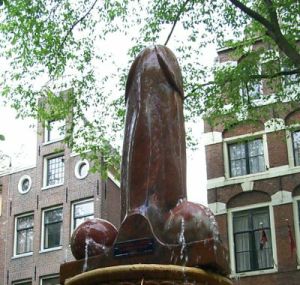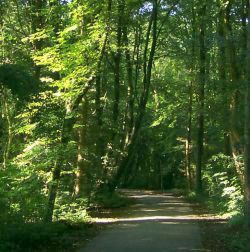Holland is a monarchy, with Queen Beatrix as the sovereign head of state. The Dutch love the queen, perhaps more than the English love Queen Elisabeth. Recently there was an uproar among the Dutch because Crown Prince Willem decided to marry his sweetheart, an Argentinian. It’s well known that her father, a powerful minister in Argentina, may be partly responsible for thousands of missing people who disappeared when right wing death squads kidnapped left wing radicals after the fall of Salvadore Allende’s liberal government. To make matters worse, the whole royal family, including Queen Beatrix and her ailing husband attempted to explain their decision to allow the wedding to go forward, live on TV in front of the entire country. Not only don’t the Dutch approve of this marriage, but the whole royal family looked ridiculous trying to make sense of it!
Politics is a favorite topic of discussion in Holland. You can debate the latest laws, discuss scandals and politicians with any Dutchman, but be prepared, because they are very opinionated. It seems the Dutch spend far more time discussing the issues than doing anything about them. However when they do decide to take action it is in the widely acceptable form of open protest and demonstration. All it takes is a little organization and any cause can become a popular cause if it catches the current sentiment. However causes are like fads in Holland and what was popular one year becomes “old-fashioned” the next.
Holland has accepted its role as an International mediator by hosting the World Court in Den Haag. It also is home to GreenPeace and Friends of the Earth. Now with full participation in the EU, Holland is being pressured to conform in ways that are unusual for the Dutch.
The riot police crackdown during the EU Summit in Amsterdam in June 1997 was something never seen before in the Netherlands. 607 people were arrested (many more detained), foreigners deported, people denied due process, and the only damage was to a flower bed, a broken window and flags removed. An entire train full of 200 Italian protesters was not allowed to disembark (supposedly they damaged the train), and they were all sent back to Italy without any processing. This seems to be the new way to handle protests, beat ’em up, lock ’em up, send ’em home, and keep the media from seeing any of it. Sound familiar? Let’s hope the Dutch can retain their civility in the face of international pressure to become a police state. After all the English, Germans, French and especially the Americans have seen fit to interfere with the Netherlands’ sovereignty concerning their laws about drugs. So now it’s protests, what next? Can the Dutch tolerance survive this onslaught of Big Brother?
Update: Prince Willem Alexander married his Argentinian fiancee in a huge ceremony that paralyzed Amsterdam and the country for a day. It was done with all the pomp and ceremony tradition required, and it seems almost everyone loved it (an egg was tossed at the gilded carriage as they road thru the streets of Amsterdam!).




